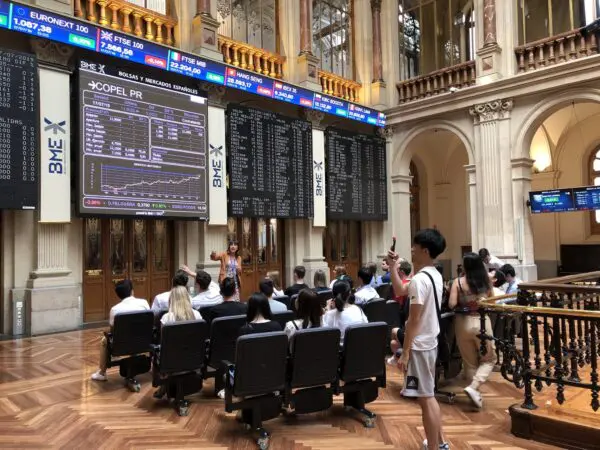
Warsaw, Poland
Sustainability Transition in Business
When:
13 July - 17 July 2026
Credits:
3 EC
Read more
Economics
When:
22 June - 10 July 2020
School:
Institution:
London School of Economics and Political Science
City:
Country:
Language:
English
Credits:
4 EC
Fee:
2500 GBP

Networks and network data describe an increasingly vast part of the modern world, through connections on social media, communications, financial transactions, and other ties. This course covers the fundamentals of network structures, network data structures, and the analysis and presentation of network data. Students will work directly with network data, and structure and analyse these data using R.
Social networks have always been at the centre of human interaction, but especially with the explosive growth of the internet, network analysis has become increasingly central to all branches of the social sciences. How do people influence each other, bargain with each other, exchange information (or germs), or interact online? A diverse array of deep questions about human behaviour can only be answered by examining the social networks encompassing and shifting around us. Network analysis has emerged as a cross-disciplinary science in its own right, and has in fact proven to be of even greater generality and broader applicability than just the social, extending to ecology, physics, genetics, computer science, and other domains.
This course will examine the key papers in the development of social network analysis, and will develop the theory and methodological tools needed to model and predict social networks and use them in social sciences as diverse as sociology, political science, economics, health, psychology, history, or business. The core of the course will comprise the essential tools of network analysis, from centrality, homophily, and community detection, to random graphs, network formation, and information flow. Alongside this we will read a series of substantive and seminal papers, shaped in part by the interests of the students and their various backgrounds, with a particular focus on the difficult task of causal inference in social networks. The course will also provide an introduction to network modelling, analysis and visualisation using R.
In the classes we will apply the techniques introduced in the associated lectures, using real network datasets, analysed using R. Each class will provide a guided introduction to the techniques, which will then be continued independently in (formative) problem sets, for which model answers will be provided.
Programme structure:
- Network terminology
- Egocentric and sociocentric networks
- Gathering network data
- Network centrality
- Structural equivalence, roles, and positions
- Mutuality, transitivity, and balance
- Assortativity and community detection
- Small world networks
- Power law degree distributions
- Exponential random graph models
- Stochastic actor-oriented models
Dr Eleanor A Power and Dr Milena Tsvetkova
Undergraduate and Graduate students
- Construct and describe empirical network data.
- Identify the main analytical reasons for tailored network analysis tools.
- Recognize, implement, and interpret the main analytical tools for describing and modeling social network data.
- Critically approach novel network datasets and analyses.
Fee
2500 GBP, Discounts apply when booking multiple courses. LSE Summer School runs three sessions during the summer, and students can book one course per session. Save 32% on your second course and 68% on your third course when booking.
When:
22 June - 10 July 2020
School:
Institution:
London School of Economics and Political Science
Language:
English
Credits:
4 EC

Warsaw, Poland
When:
13 July - 17 July 2026
Credits:
3 EC
Read more

Stuttgart, Germany
When:
05 July - 26 July 2026
Credits:
6 EC
Read more

Madrid, Spain
When:
29 June - 24 July 2026
Credits:
6 EC
Read more